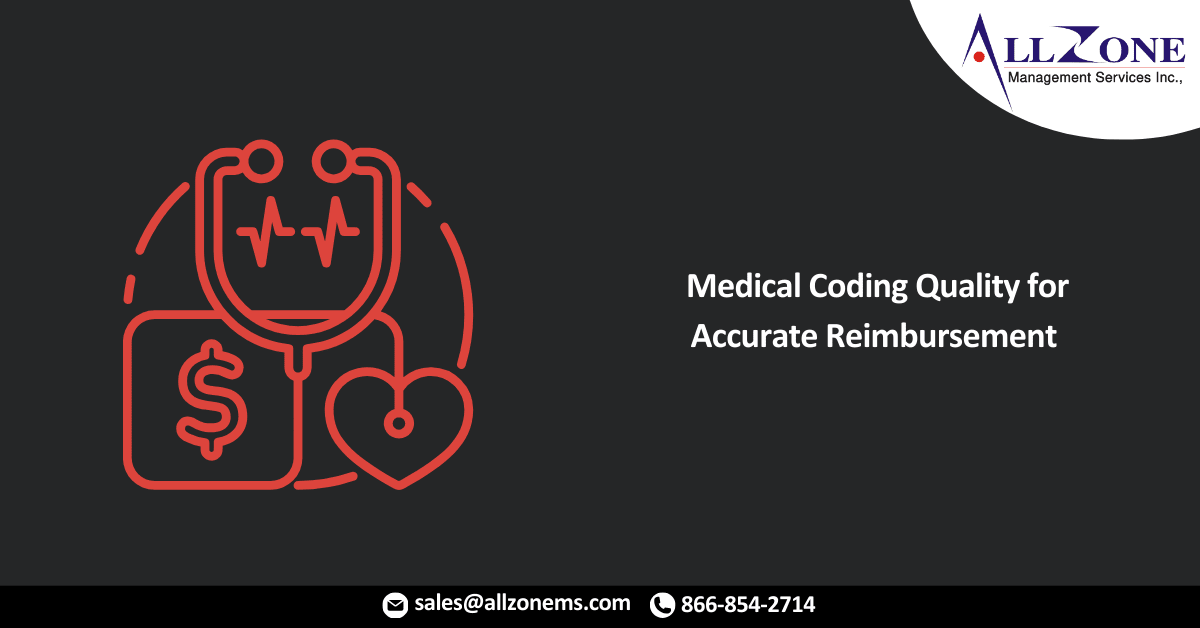In the complex world of healthcare, accurate medical coding is the linchpin of a healthy revenue cycle. For US-based medical practices, hospitals, and billing companies, efforts to Improve Medical Coding Quality directly translate to timely and accurate reimbursements. Errors in coding can lead to denied claims, compliance issues, and significant financial losses. This blog post explores seven actionable strategies to enhance medical coding quality and optimize reimbursement processes in the US healthcare landscape.
Understanding the Importance of Accurate Medical Coding:
To improve medical coding quality, medical coding involves translating diagnoses, procedures, and medical services into standardized alphanumeric codes. These codes are used by payers (insurance companies, Medicare, Medicaid) to determine reimbursement amounts. In the US, coding relies heavily on systems like ICD-10-CM (for diagnoses), CPT (for procedures), and HCPCS Level II (for supplies and services).
Inaccurate coding can trigger a cascade of problems:
- Denied Claims: Incorrect or incomplete codes lead to claim denials, delaying reimbursement and increasing administrative burdens.
- Reduced Reimbursement: Under-coding can result in lower payments than deserved, while over-coding can lead to audits and penalties.
- Compliance Risks: Non-compliance with coding guidelines can result in legal and financial repercussions.
- Operational Inefficiencies: Reworking denied claims consumes valuable time and resources.
- Patient Dissatisfaction: Delayed or incorrect billing can negatively impact patient experience.
7 Strategies for Improving Medical Coding Quality
Here’s how US healthcare providers can enhance their coding quality and ensure accurate reimbursement:
Continuous Education and Training:
-
- The coding landscape is constantly evolving with updates to coding guidelines and regulations. Invest in ongoing education and training for coders.
- Ensure coders are certified (e.g., CPC, CCS) and stay up-to-date with the latest coding manuals and bulletins from organizations like the American Academy of Professional Coders (AAPC) and the American Health Information Management Association (AHIMA).
- Provide specialized training on specific areas of coding, such as evaluation and management (E/M) coding, surgical coding, or specialty-specific coding.
- Utilize online resources, workshops, and conferences to keep coders informed.
Implement Regular Audits and Reviews:
-
- Conduct regular internal audits to identify coding errors and areas for improvement.
- Perform retrospective audits to analyze previously submitted claims and identify patterns of errors.
- Implement concurrent audits to review coding before claims are submitted, allowing for real-time corrections.
- Use software tools to automate audit processes and generate detailed reports.
- Utilize external audits from certified professionals for an unbiased review.
Leverage Technology and Coding Software:
-
- Invest in advanced coding software with features like code validation, clinical documentation improvement (CDI) integration, and automated code lookup.
- Utilize electronic health records (EHRs) with integrated coding tools to streamline the coding process.
- Implement computer-assisted coding (CAC) solutions to automatically assign codes based on clinical documentation.
- Use software that checks for National Correct Coding Initiative (NCCI) edits.
- For those seeking reliable and efficient coding support, consider partnering with reputable medical coding companies that utilize cutting edge technology.
Enhance Clinical Documentation Improvement (CDI):
-
- Accurate coding relies on clear and comprehensive clinical documentation. Implement a robust CDI program to ensure that physicians and other healthcare providers document all relevant information.
- Provide physicians with training on documentation requirements and best practices.
- Use CDI specialists to review medical records and identify documentation gaps.
- Establish clear communication channels between coders and clinicians to resolve documentation queries.
- Focus on documenting medical necessity.
Establish Clear Coding Policies and Procedures:
-
- Develop comprehensive coding policies and procedures that are aligned with current coding guidelines and regulations.
- Create standardized coding workflows and documentation templates.
- Ensure that all coders are aware of and adhere to the established policies and procedures.
- Document all coding decisions and rationale.
- Many organizations find that outsourcing their coding needs to specialized medical coding services can ensure consistent adherence to these policies.
Foster Collaboration and Communication:
-
- Promote collaboration between coders, physicians, and billing staff to ensure seamless communication and accurate coding.
- Establish regular meetings to discuss coding issues and share best practices.
- Create a culture of open communication where coders feel comfortable asking questions and seeking clarification.
- Companies such as Allzone MS are examples of bussinesses that provide services that help with this collaboration.
Stay Updated with Regulatory Changes:
-
- The healthcare industry is subject to frequent regulatory changes. Stay informed about updates from CMS, OIG, and other relevant agencies.
- Subscribe to industry publications and attend webinars to stay abreast of the latest coding and billing regulations.
- Pay close attention to changes with the Physician Fee Schedule.
- Implement a system to ensure that all coding staff are notified of changes.
Enhancing Medical Coding Quality in US Healthcare
To Improve Medical Coding Quality, healthcare providers must recognize that it’s an ongoing process that requires dedication, investment, and a commitment to continuous improvement. By implementing these seven strategies, US-based healthcare providers can minimize coding errors, maximize reimbursement, and ensure compliance with regulatory requirements. Partnering with experts like Allzone Management Services, a leading provider of medical coding services, can further enhance coding accuracy and efficiency through specialized solutions and industry expertise. Accurate coding is not just about financial success; it’s about providing quality care and maintaining the integrity of the healthcare system. By prioritizing coding quality, healthcare organizations can build a foundation for long-term financial stability and patient satisfaction, making the role of medical coding companies essential in optimizing performance.

